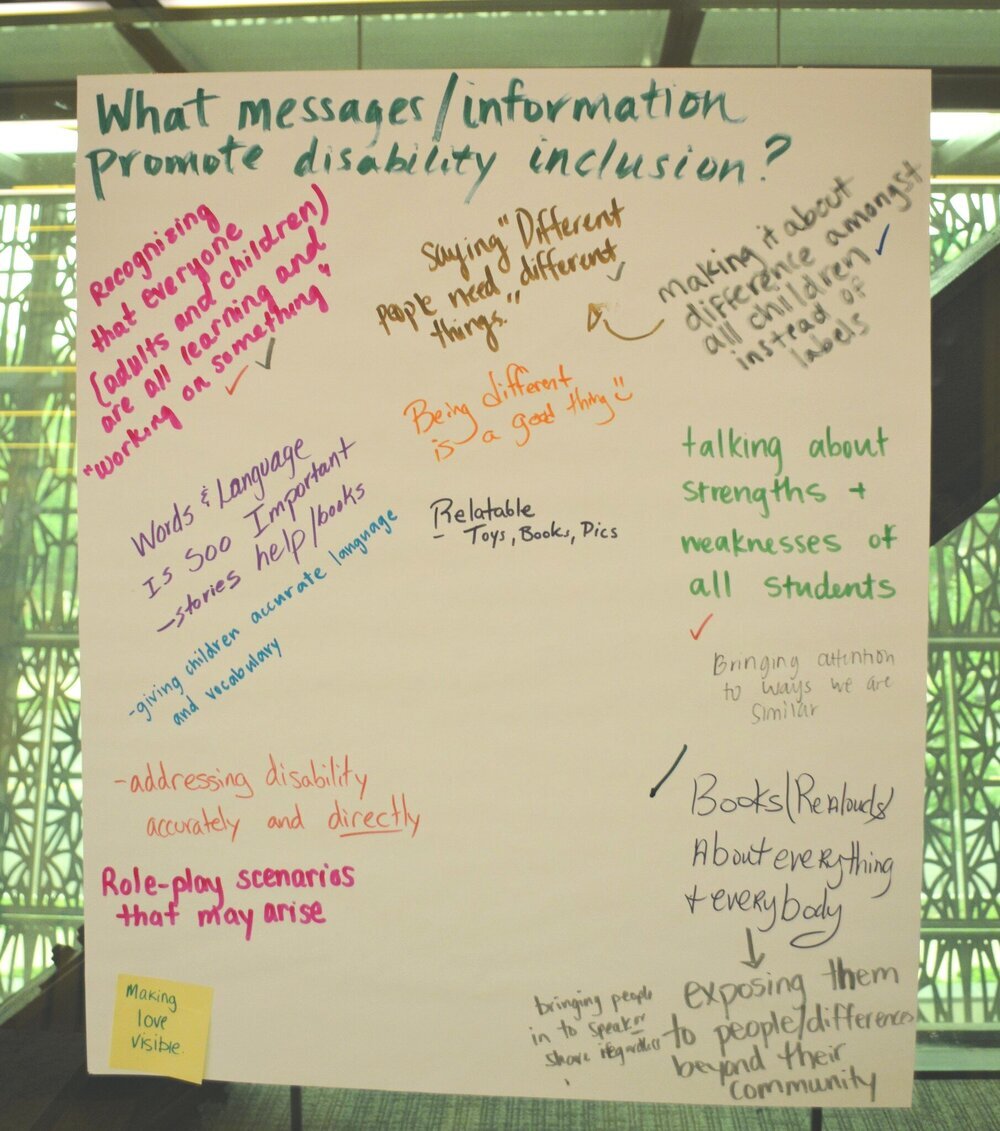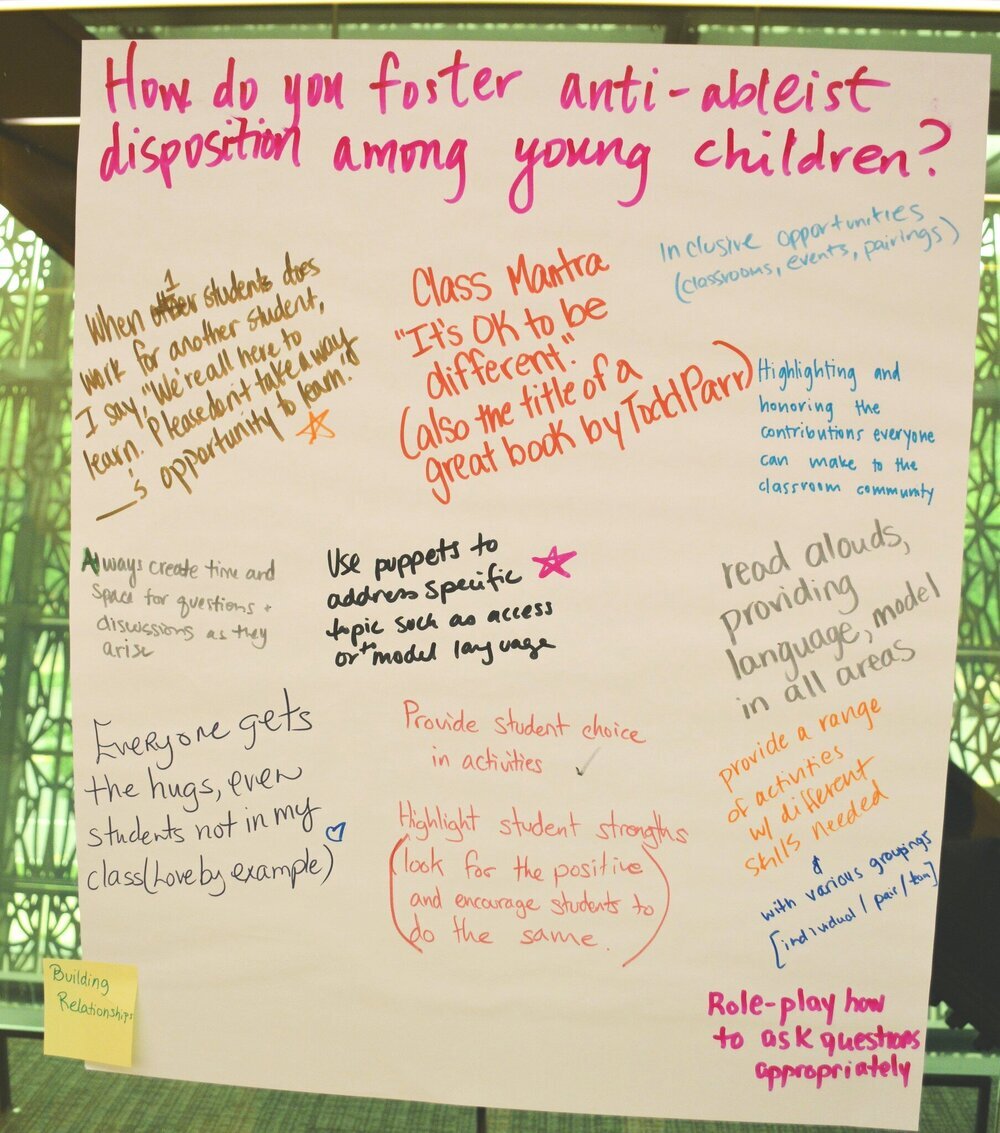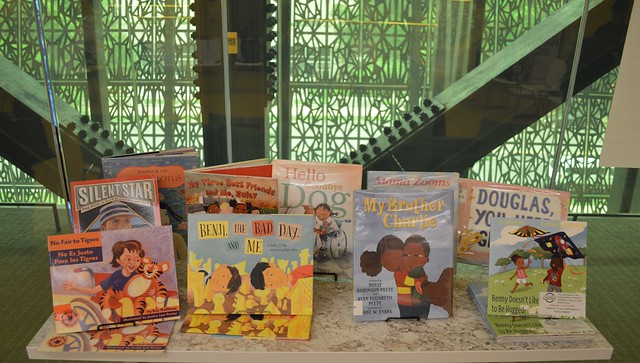Talking to Young Children About Disabilities
By Makai Kellogg
Anti-Bias Early Childhood Leadership Team Members (from left to right), Rosalie Reyes, Shayna Tivona, Makai Kellogg, Denisha Jones, Marissa Howser (not captured: Carlos Duque, Nichelle Dowell)
Last May, Teaching for Change’s D.C. Area Educator’s for Social Justice, hosted a session for early childhood educators on teaching about disability. There was a variety of educators and specialists in attendance including therapists and teachers of inclusive and self-contained classrooms.
Using the chapter titled “Learning About Disabilities and Fairness” from the book Anti-Bias Education for Young Children and Ourselves, small groups discussed sections related to children’s early experiences and understandings of ability and disability such as: “young children are curious; they want to know about what they see” and “young children have the capacity to appreciate their shared abilities and similarities.”
The anti-bias goals pertaining to disability and fairness are:
All children will develop autonomy and independence (as they are able) as well as confidence and pride in their competence.
All children will learn accurate information, appropriate to their developmental stage, about disabilities and special needs.
All children will gain understanding about how their own abilities are the same as and different from others’.
All children will learn to interact knowledgeably, comfortably, and fairly with each other, whatever their abilities.
All children will learn how to challenge name-calling and stereotyping with respect to their own or others’ abilities and will share ideas about accessibility in order to promote interaction and independence.
We reflected on our early experiences learning about disability as well as how we acknowledge and talk about disability in the classroom. I have to be very mindful of how to address behaviors in the classroom that may be a result of sensory processing, explain individualized interventions or respond to a question about someone we see during a field trip. I like to use puppets to provide a dialogue and language as well as space where children can feel comfortable asking questions. Books that reflect characters my students can relate to such as The Amazing Erik or Susan Laughs are also helpful tools. This resource focuses on ways to raise anti-ableist kids.
Working on my own ableism, I’ve eliminated the word “crazy” from my vocabulary. The word stigmatizes those with mental illness and there are plenty of other words that actually describe what one really means. Words are powerful and there are many that oppressively devalue people with disabilities. Using “people first” language is another way to not label people by their disability for example, “child with autism” versus “autistic child.” Here is a list I’ve used as a language reference but there are many sites that focus on anti-ableism.
Posters of questions were displayed around the room for gallery discussions –
How do you foster anti-ableist disposition among young children?
What questions do you have about addressing the needs of children with disabilities?
What questions have you heard young children ask about disabilities? How have you responded?
What messages/information promote disability inclusion?
Using an adapted version of Louise Derman-Spark’s Guide for Selecting Anti-Bias Literature that specifically addressed disability as part of diversity, we examined children’s books that highlight visible and invisible disabilities, stories of activism, and family. We also heard from representatives from Strong Start DC Early Intervention Program that assesses and refers children in D.C. for services.
View photos from event
Read more and follow Makai's blog at: Makai's Early Childhood Equity Endeavors






